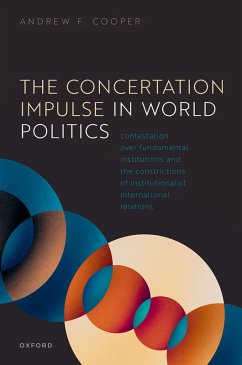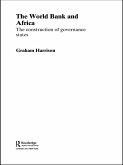This book unravels the centrality of contestation over international institutions under the shadow of crisis. Breaking with the widely accepted image in the mainstream, US-centric literature of an advance of global governance supported by pillars of institutionalized formality, Andrew Cooper points to the retention of a habitual impulse towards concertation related to informal institutionalism. Rather than endorsing the view that world politics is moving inexorably towards a multilateral, rules-based order, he places the onus on the resilience of a hierarchical self-selected concert model that combines a stigmatized legacy with the ability to reproduce in an array of associational formats. Relying for conceptual guidance on the recovery of a valuable component in the intellectual contribution of Hedley Bull, a compelling case is made that concertation represents a fundamental institution as a peer competitor to multilateralism. In effect, the debate over institutional design is recast away from an emphasis on utilitarian maximization towards a wider set of cardinal - and highly contested - questions: the nature of rules at the global level, the salience of institutional clubs, and the meaning and impact of (in)equality and cooperation/coordination among states across the incumbent West/non-incumbent Global South divide.
Dieser Download kann aus rechtlichen Gründen nur mit Rechnungsadresse in A, B, BG, CY, CZ, D, DK, EW, E, FIN, F, GR, HR, H, IRL, I, LT, L, LR, M, NL, PL, P, R, S, SLO, SK ausgeliefert werden.









